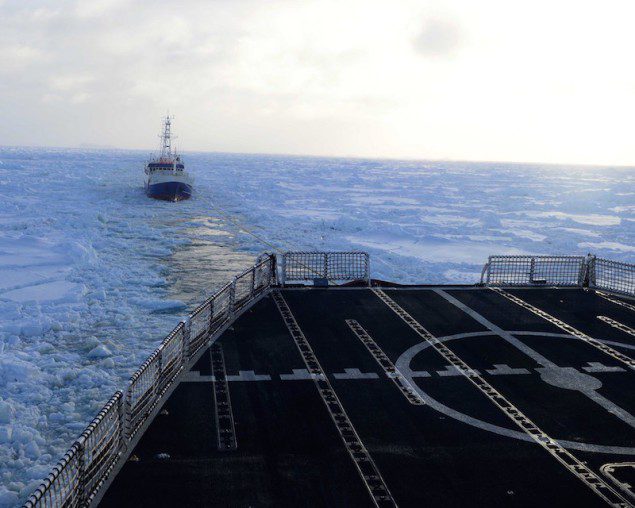
Polar Star, our only heavy icebreaker capable of Antarctic operation (40 y.o.) has freed the 275 foot F/V Australian Chieftain which was beset in pack ice. - gwc
USCG Icebreaker Frees Fishing Vessel Near Antarctica [PHOTOS] - gCaptain Maritime & Offshore News: "The crew of the USCGC Polar Star freed an Australian fishing vessel from thick pack ice Friday night approximately 900 miles northwest of McMurdo Sound, Antarctica.
The 207-foot FV Antarctic Chieftain contacted Rescue Coordination Centre New Zealand earlier this week after becoming beset in ice with 27 people aboard, reporting that three of its four propellers have been damaged by ice and it had lost its ability to maneuver. The RCC New Zealand then diverted the Polar Star, more than 330 miles away, to respond to the vessel.
After rendezvousing with the fishing vessel overnight Thursday, the crew of the Polar Star was able to take the Antarctic Chieftain in tow. The USCG reported that the vessels are surrounded by 12 to 15 feet thick ice covered with two feet of snow."
'via Blog this'













